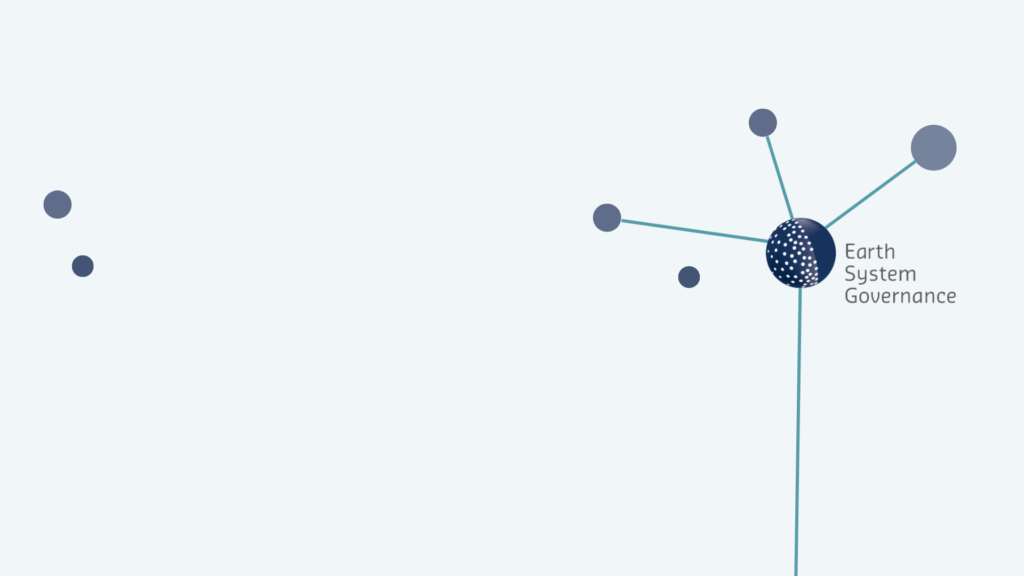Job Listing [from Utrecht University Website]
Utrecht University has opened a two-year postdoctoral research position in the field of global environmental governance. The postdoctoral researcher will become part of the new, cutting-edge research project ‘Problem-Shifting between International Environmental Treaty Regimes: Causes, Consequences, and Solutions’ (ProblemShifting). This research project is directed by Asst. Prof. Rakhyun E. Kim, and funded for five years (2021-2026) through a 1.5 million euro ‘Starting Grant’ from the European Research Council.
The project explores a major dilemma in global environmental governance, that decisions to protect one part of the environment often lead to new, and sometimes even more chronic and severe, environmental problems – the phenomenon known as global ‘environmental problem-shifting’. In this project, we focus in particular on problem-shifting occurring between international environmental treaty regimes, which are articulated in over a thousand issue-specific multilateral environmental agreements. We will (1) identify and explain the conditions under which problem-shifting occurs; and (2) assess and predict the systemic effects of problem-shifting through a novel methodology. Building on these findings, we will (3) offer innovative governance solutions that help ensure our global environmental efforts add up to a net positive impact.
The postdoctoral researcher will focus in particular on the first aim of the project, and theorize the causes of environmental problem-shifting between international environmental treaty regimes. It is expected that the postdoctoral researcher will contribute to advancing our understanding of the structure and dynamics of global environmental governance.
The postdoctoral researcher will be supervised by Dr. Rakhyun E. Kim and receive support from the project team. The team includes Prof. Frank Biermann and two PhD researchers, along with an international network of prominent scholars sitting on the project’s Advisory Board (with expertise in international relations, international environmental law, earth system governance, earth system science, and computational social science).
Qualifications
We expect the postdoctoral researcher to bring expertise in the field of global environmental governance, as evidenced by a PhD thesis or related postdoctoral experience in a relevant field of study. With a view to the research design of ProblemShifting, we are looking especially for a highly motivated and talented postdoctoral researcher with:
- a good knowledge of the theory of international relations, global environmental governance, global environmental politics, or international environmental law;
- a strong research interest in the architecture of global environmental governance;
- a strong interest in theoretical and methodological innovation, especially through interdisciplinary approaches; and
- excellent qualitative research skills, preferably with experience with methods such as process tracing and qualitative comparative analysis (quantitative research skills are also considered as a strong asset).
In addition, we expect the postdoctoral researcher to have excellent communication skills; to be a good team player; and to have a strong affinity with working in an interdisciplinary and multicultural research environment. Excellent English-language skills are required, as the working language of our institute and the project is English.
Offer
We offer a full-time position (1.0 FTE) for the duration of two years. An extension may be possible subject to the acquisition and availability of extra funding. The gross salary – depending on previous qualifications and experience – ranges between €2,790 and €3,746 (scale 10 according to the Collective Labour Agreement Dutch Universities) per month for a full-time employment. Salaries are supplemented with a holiday allowance of 8% and a year-end bonus of 8.3%. Utrecht University also has an appealing package of terms of employment, including the choice for a good balance between work and private (a good arrangement for leave, among other things), possibilities for development and an excellent pension scheme. More information on working at Utrecht University can be found here.
About the organisation
The postdoctoral researcher will join the project ProblemShifting directed by Dr. Rakhyun E. Kim, and work very closely together with the rest of the team.
Institutionally, the researcher will be affiliated with the Environmental Governance group, one of the five sections of the university’s Copernicus Institute of Sustainable Development. The Environmental Governance group is a dynamic, ambitious and internationally leading team of over sixty researchers (including 30 PhD students) with a focus on fundamental and policy-oriented research of governance processes, from local to global levels. The Copernicus Institute has been evaluated in a 2014 international review as the highest ranked research institute in environmental and sustainability sciences in the Netherlands. Since then, the institute has intensified its efforts in maintaining its leading position by investing in numerous international faculty appointments and developing new, internationally oriented teaching programmes. The Copernicus Institute is part of the Faculty of Geosciences, which is a strong and competitive organization with 720 staff and 3,400 students. The Faculty of Geosciences also houses the International Project Office of the Earth System Governance Project, which is the largest social science research network in the area of governance and global environmental change.
Utrecht University, founded in 1636, is one of the leading research universities in Europe, with particular strengths in sustainability sciences. The university has been listed as the best Dutch university in the Academic Ranking of World Universities for more than a decade. In geography and public administration, Utrecht University is ranked as the 3rd best university worldwide in 2020. According to the Times Higher Education World University Rankings, Utrecht University’s research in the field of climate change and ecosystems has the greatest impact in the world. Our university is committed to a strategic orientation on four overarching themes, which include ‘Pathways to Sustainability’ and ‘Institutions for Open Societies’. The postdoctoral researcher will be able to conduct research at the interface of, and with the support of, these main strategic themes of the university, opening up numerous opportunities for university-wide interaction.
The city of Utrecht is one of the oldest cities in the Netherlands, with a historic centre and an internationally oriented culture that is strongly influenced by its centuries-old university. Utrecht has been consistently ranked as one of the most liveable cities in the Netherlands, and is well-connected to local and international transport hubs (e.g., 30 minutes by train to the Netherland’s main international airport).
Additional information
For more information about this position, please contact: Dr. Rakhyun E. Kim by sending an email to r.kim@uu.nl.
To apply, please send your curriculum vitae, including a letter of motivation via the ‘apply’ button below. Please include the following in your application:
- a motivation letter explaining your interest and suitability for the position;
- a full curriculum vitae (CV) with a list of publications; and
- the contact details of three references/referees (Letters of Recommendation or copies academic work are not required in the first selection round).
Applications close on June 13, 2021 (23:59 CEST). The successful candidate is expected start on 1 November 2021.


